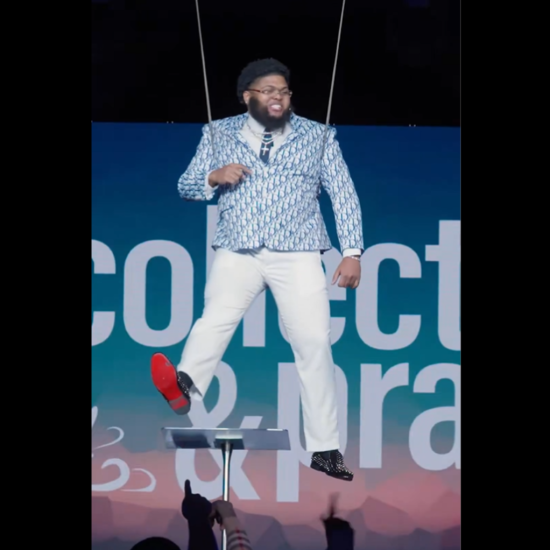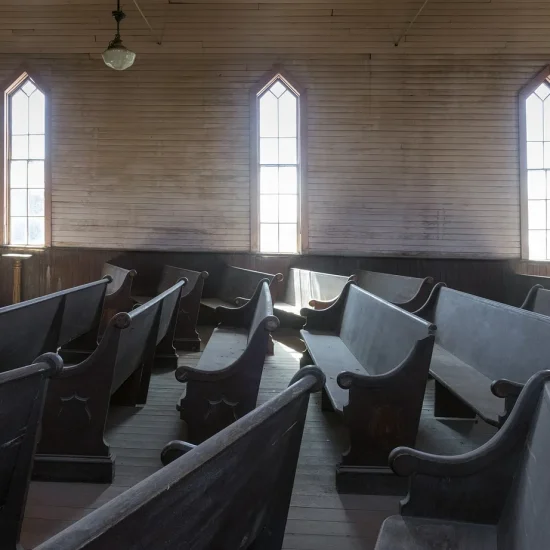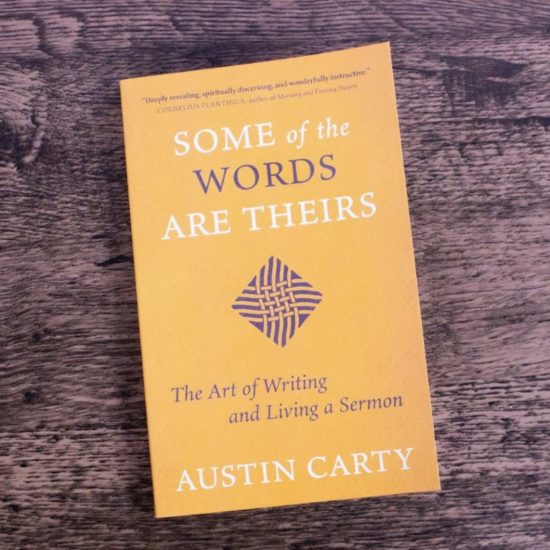
Pastors have broad job descriptions. They are preachers, teachers, counselors, administrators, organizers, and so much more. Many church members rarely interact with their pastors outside of Sunday morning worship, making it difficult to understand the dynamics of this role. “Behind the Pulpit” is a regular feature intended to pull back the curtain on the minister’s life and introduce our readers to how a diverse set of leaders go about shepherding their flocks.

Joy Martinez-Marshall
This installment features an interview conducted by email with Joy Martinez-Marshall, pastor of First Baptist Church in Lincoln, Nebraska, which is part of the American Baptist Churches USA. Her responses have been lightly edited for clarity.
What didn’t you learn in seminary that you needed to know for church leadership?
Pandemics. I definitely did not learn how to keep my head on a swivel. The dynamic role of being a pastor was always stressed and discussed but never served as a primary focus of how to do ministry. Because church leadership in my context is so broad, I wish I had more training about how to balance the mystical elements of ministry along with the revision of by-laws.
If I could go back and take a course on what it means to understand the budget, facilitate staff relationships, and write a sermon every week, I would. During my first couple of months in church leadership, I had to learn to make time to accomplish a lot of different things at once. I felt torn focusing on each task without any continuity, but I have managed to learn that some things are a trial by fire.
How has your personal understanding of God changed by serving the local church?
My understanding of God has been pushed, stretched, and expanded. There is something about getting to hear about the suffering and celebrations of humanity that remind me to seek God in all things. Before serving in this capacity, I would often look for God in the big events and grand gestures of life, but the real challenge for me has been finding God in the mundane, daily tasks.
My reliance on the Holy Spirit is a necessity. I am constantly overwhelmed by God’s faithfulness in my life and the lives of the people I serve. Hearing about God moving in the lives of my members reminds me that God is already at work. I have to believe and trust that the Spirit of God is at work before I have the ability to even know what is going on. This truth is what I have come to rest in each day.
How have your personal religious/devotional practices been shaped and altered by being the shepherd of a flock?
I have always been a big Divine Hours person, but I find myself listening more than speaking these days. This usually happens in the morning when I am getting ready to leave my house or driving in the car on the way to the church building. My devotional time varies every week because that is the nature of being a solo pastor. I rely heavily on apps that are accessible on my phone or computer.
Being the shepherd of a congregation made me realize how crucial it is to engage in spiritual disciplines and private devotions. It is obvious in my preaching if I was distracted during the week or was lax in prayer. Reading liturgies or ancient prayers has helped to shape my spiritual life because in most church settings I am the one praying aloud or spontaneously. In my devotional life, I like to join the cloud of witnesses and rest on what they have said.
What does justice look like in your local context? How about love? How do you lead people towards both?
Our congregation shares a building with three other congregations. Though we are all autonomous groups, we share in ministry as well. Lincoln has a vibrant and large refugee population. Two of these three congregations are made up of refugee groups. Justice to us looks like addressing inequity and racism in our city and within our own church. It is working on not being paternal or acting like saviors in the lives of our sibling congregations. Justice is advocating for and confessing to where we as a church have implicitly treated them in ways that perpetuate stereotypes and racism.
Our love is working to embrace everyone that comes in our doors. Right now, love looks like encouraging people to wear masks to keep our children safe and encouraging everyone that is able to get vaccinated to do so. Leading people towards both love and justice comes in the form of uncomfortable conversations and being the first to personally admit where I fall short. We have open dialogue with the other congregations and continue to talk about social injustice. I try to allow for plenty of time for questions and conversations during bible study and book discussion. No topic is off-limits, which I think helps us to think deeply about love and justice and where we intersect with them.
What is the funniest or oddest thing that has ever happened to you in ministry (that you can share without breaking confidentiality)?
The funniest thing occurred when my congregation discovered that I like to read a good romance novel every now and again. I need a rom-com and HEA (happy ever after) at week’s end.
A congregant asked what kind of romance novels I read and if they were a little “naughty.” I admitted an openness to reading any kind of novel. She then brought me a bag full of them disguised in a Super Saver yellow bag so that no one would see their titles. She snuck them into my office on a Sunday morning before worship with a grin on her face.
When I got home, I giggled. Some of the books had embarrassing covers and I would not have imagined reading them. Needless to say, they are in my TBR (To Be Read) stack. It was sweet that she thought of me but may not be taking any more book recommendations. My husband had a good laugh and now shows them off to our company as a gift from the congregation.
The oddest situations are the never-ending encounters I have when people do not believe that I am the pastor of First Baptist Church Lincoln. It must be my baby face.
What has leadership through a pandemic required of you? How has your church experienced this public health crisis?
It required me to learn how to be flexible and be willing to pick up new skills. I think many millennials, including myself, learned how to bake bread, while also learning how to film and edit videos. But it also asked me to give all of myself to this ministry and role. It has been challenging and demanding but rewarding.
I started in this pastorate four months before the pandemic started. It gave me a chance to connect with my members through phone calls, letters, and zoom. One member said, “I never thought you would remember us or even know our names.” A phone call was enough to change the narrative. I also got to know our people who felt like they were just outside of the church.
As a smaller congregation, there is a willingness to try new things like zoom and drive-by Communion. We did not meet in the church building for months with the exceptions of a brief Christmas Eve Service and baptism celebration. The online fellowship times helped us stay energized for a while. However, because of the rising number of cases, our church feels restless and worn out. Unfortunately, some of our members got COVID-19 and experienced the adverse effects of it.
This public health crisis has exhausted everyone. I am hoping we can still cling to the hope that God is working even if we feel like we are not.
What gives you hope in the church today for what the church will be tomorrow?
Christians who are willing to deconstruct their faith in order to rebuild it. It gives me hope to see Christians question what they learned as children to find deeper meaning and connection.
The Church has endured so much and can endure even more. Christians that seek justice even when it is unpopular and are willing to make a change in the church are a good thing. Also, church folks trying to actively live out their faith gives me hope. I think it is in this divine wrestling the church will be stronger and more thoughtful in the space it occupies.
Christians seeking to live out Micah 6:8 in a way that engages with the public sphere while recognizing that Christianity does not always have to be the loudest, more aggressive voice is a great start. A church that is willing to get into the mud and muck of life will find Jesus there. I think the church willing to be as incarnational as possible is the hope of tomorrow’s church. As an accused pessimist, I am still hopeful for the church’s future.






